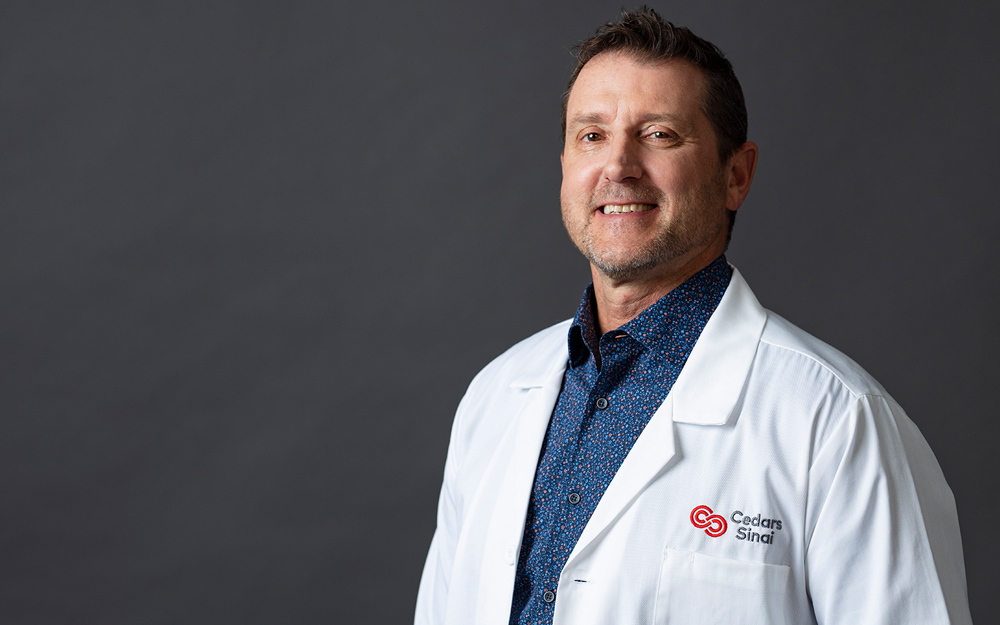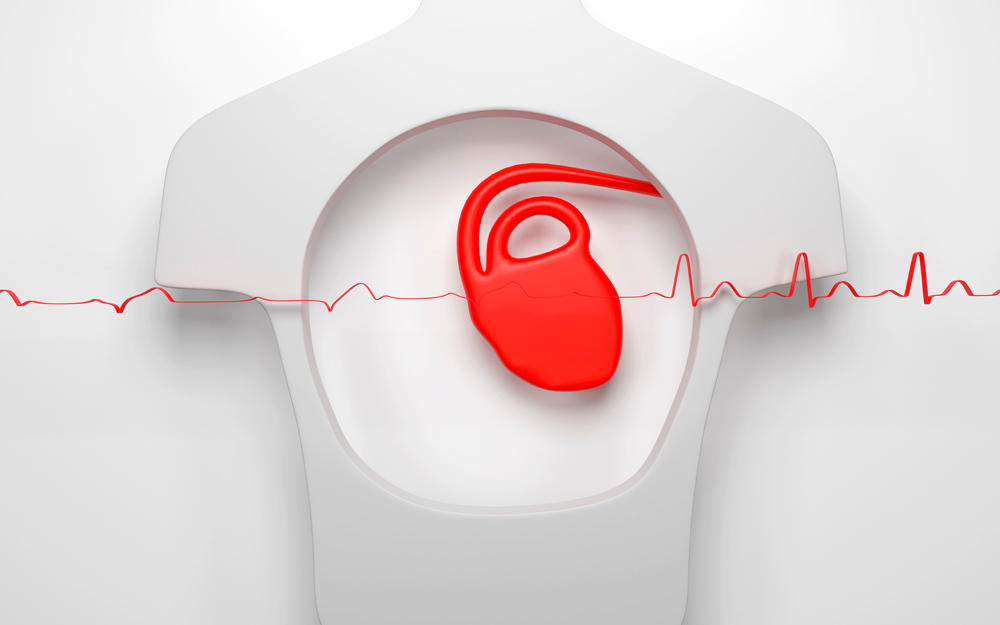Mental Health: A Key to the Heart
Date
July 2, 2024

Date
July 2, 2024
Credits
Medical providers featured in this article

In Brief
{{cta-block}}
For decades, many people in medicine didn’t take it seriously when patients reported a racing heart caused by a panic attack or a grief-induced heartache. On the other hand, if similar symptoms seemed to be linked to a physical heart condition, they typically were regarded as a cause for alarm and aggressively managed.
In the emerging field of psychocardiology, however, doctors now realize that mental and cardiovascular health are closely linked. Anxiety disorders affect as many as 40% to 70% of coronary heart disease patients. Also, about 17% to 44% of those patients have depression—three times more than people with healthy hearts. Across the board, mental health conditions dramatically drive up the risk of cardiovascular illness, related complications and death.
“We can’t just focus on the biology of heart health. Many patients develop worse heart symptoms in response to emotional stress.”
Tackling psychological health in tandem with cardiovascular health could boost survival and help more of the approximately 128 million Americans with heart disease make strong recoveries, according to Cedars-Sinai experts. Heart disease is responsible for taking roughly 1 million lives each year, making it the nation’s leading cause of death.
“We can’t just focus on the biology of heart health,” said Janet Wei, MD, a cardiologist with the Smidt Heart Institute at Cedars-Sinai and associate medical director of the Biomedical Imaging Research Institute. “Many patients develop worse heart symptoms in response to emotional stress.”
Researchers say they are just scratching the surface of psychocardiology. One day, they predict it might be used to identify people at high risk of heart disease due to mental health conditions and prevent them from ever developing cardiac problems.
In the Newsroom: Therapy Versus Medication: Comparing Treatments for Depression or Heart Disease
{{providers}}
The Heart-Mind Connection
Prolonged stress wears on the heart and makes people more vulnerable to dangerous heart attacks and strokes, explained Waguih IsHak, MD, vice chair of education and research in Cedars-Sinai’s Department of Psychiatry and Behavioral Neurosciences.
The psychiatrist is investigating anxiety, depression and insomnia in heart disease patients and comparing the effectiveness of different treatments.
Physiologically, stress jolts the body’s immune system defenses, releasing a flurry of inflammatory proteins that kill off healthy cells and damage cell regrowth. That pumps up cortisol and adrenaline, which are fight-or-flight hormones that raise blood sugar, blood pressure and heart rate.
Not only does mental health affect a patient’s heart health, but the reverse also is true.
After a severe cardiac episode, such as a stroke or heart attack, it’s natural to worry. You might feel sad, exhausted, frustrated or overwhelmed, particularly if you’re in pain or disabled and struggle to move around or sleep. About half of all heart failure patients show signs of depression. Those feelings often escalate into anxiety, major depression or post-traumatic stress disorder (PTSD) in the year after diagnosis, further compromising the heart. Over time, that raises the likelihood of another emergency or even death. For stroke patients with those mental health issues, the risk rises threefold within a decade.
IsHak explained that as psychocardiology grows, doctors are increasingly investigating the psychological impact of heart disease and its consequences. Depression saps heart patients of the energy and motivation to take care of themselves, meaning more missed appointments and medication doses. It’s also linked to unhealthy habits, such as smoking, eating fewer nutritious meals and skipping workouts.
“They feed into each other,” IsHak said. “It’s a vicious cycle.”
At the Barbra Streisand Women’s Heart Center in the Smidt Heart Institute, Wei is overseeing a study of the overlap with Takotsubo cardiomyopathy. This potentially deadly condition, nicknamed “broken heart syndrome,” weakens and swells a part of the heart, interfering with its ability to pump blood and interrupting the flow of needed oxygen and nutrients.
The vast majority of cases occur in women and are triggered by intense emotional or physical stress, such as a loved one’s death, divorce, an earthquake or even a stroke.
“We are interested in understanding why certain women have recurrent Takotsubo events and whether mental health conditions such as anxiety, chronic stress and PTSD play a role in their predisposition,” said Wei, who holds the Erika J. Glazer Chair in Women’s Cardiovascular Research, Education and Innovation at Cedars-Sinai.
Healing Mental Health in Heart Disease Patients
Further studies will be crucial in identifying the right care for different patients.
“Everybody thinks you just find out what the evidence is to treat mental health in the real world and apply it to heart disease patients,” IsHak said. “But it’s not that simple.”
Most heart disease patients are already taking multiple medicines and want to cut back—not add more. Common antidepressants may also interact with cardiac drugs or affect the heart, he added.
IsHak is researching both pharmacological and holistic care, in the hopes of giving heart patients agency. His first batch of results, published in JAMA Network Open in January 2024, found behavioral activation therapy was on par with antidepressant medication management in easing depression in heart failure patients. Depression symptoms plummeted by 50% in both groups with therapy also cutting patients’ emergency department visits and length of hospitalization.
Behavioral activation involves working with your therapist or life coach to pepper your day with activities in which you find pleasure or value. That could include taking a walk, listening to music, volunteering or having a laugh with a good friend.
Reach Out for Help
Cedars-Sinai screens all patients for depression and works closely with the Department of Psychiatry and Behavioral Neurosciences to refer those needing specialty care. Healthcare workers look for signs of:
- Severe fatigue, no matter how much sleep you get
- Withdrawal from regular activities
- Appetite changes
- Feelings of emptiness, hopelessness, worthlessness or shame
If you have heart disease and experience these persistent symptoms, experts encourage you to bring your specific concerns to your cardiologist or primary care doctor. Anyone contemplating hurting themselves or others should call the 988 Lifeline right away.
Your doctor can guide you to the right care. For some, that’s a selective serotonin reuptake inhibitor (SSRI). Other treatments—including cognitive behavioral therapy (CBT), a complex and comprehensive form of talk therapy—seek to reframe thought patterns to develop more positive thinking and improve problem-solving, healthy sleep hygiene and coping skills.
Specifically, IsHak is studying the impact of CBT in heart patients with insomnia, as well as the possible benefits of mindfulness-based stress reduction on patients with anxiety. This approach uses calming meditations and grounding strategies.
“Wellness doesn’t have to center on a medication name that is hard to pronounce or some nebulous concept that you can’t really grasp,” IsHak said. “Wellness focuses on building joy and meaning to ultimately improve your quality of life.”






